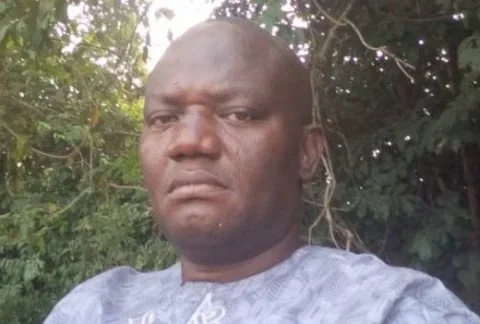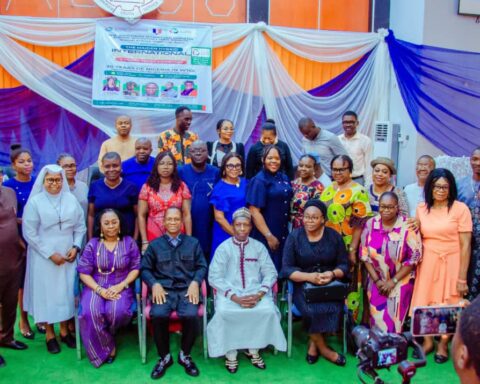The recent arraignment by the Federal Government, of 76 suspects, including 32 minors, most of who are from the northern part of the country, before Justice Obiora Egwuatu at the Federal High Court in Abuja, for participating in the #EndBadGovernance protests in August this year, raises significant concerns about the state of democracy, human rights, and the rule of law in Nigeria. This move by the government not only undermines the citizens’ constitutional rights to peaceful assembly and free expression but also sets a dangerous precedent for the treatment of dissent and civic engagement.
At the heart of this issue is the government’s clear attempt to criminalize peaceful protest. The #EndBadGovernance movement, much like the #EndSARS protests before it, reflects deep-seated frustrations among Nigerian citizens, particularly the youth, over poor governance, corruption, insecurity, and a lack of opportunities. Protests are a legitimate and constitutionally protected means through which citizens can voice their grievances in a democratic society.
The fact that the Federal Government chose to prosecute individuals, especially minors, for participating in peaceful demonstrations signals a worrying disregard for the democratic values enshrined in Nigeria’s constitution. The arraignment of protesters sends a chilling message that any form of dissent or public expression of dissatisfaction with the government will be met with punitive measures, effectively stifling free speech and civic participation. This creates an atmosphere of fear and intimidation, discouraging citizens from exercising their fundamental rights to hold their leaders accountable.
The inclusion of 32 minors among the 76 arraigned individuals is especially troubling. Nigeria is a signatory to several international conventions and treaties, including the United Nations Convention on the Rights of the Child (CRC) and the African Charter on the Rights and Welfare of the Child. These agreements oblige the Nigerian government to prioritize the best interests of children and to ensure that they are protected from unjust treatment.
Arraigning minors in court alongside adults for their participation in peaceful protests is a violation of their rights under both Nigerian law and international human rights standards. Minors should be treated differently under the law, with a focus on rehabilitation and protection, rather than punitive measures. Their involvement in protests should not be seen as a criminal act but rather as a sign of their engagement with societal issues—something that should be encouraged, not criminalized. By subjecting them to such harsh legal treatment, the Nigerian government is failing to uphold its obligations to safeguard the welfare of children and youth.
The Federal Government’s decision to pursue legal action against these protesters, particularly under the pretext of protecting national security, is a grossly disproportionate response. Peaceful protests, even those that challenge the status quo, are a vital part of any healthy democracy. Labeling these acts of dissent as criminal offenses or portraying the protesters as threats to national security reflects a misuse of state power to suppress opposition and criticism.
Furthermore, the mass arraignment of suspects, including minors, raises serious concerns about the fairness of the judicial process. By grouping together so many individuals, the government risks depriving each defendant of a fair and individualized assessment of their case. This approach is more reminiscent of authoritarian regimes that seek to make examples out of dissenters rather than ensuring that justice is served.
Instead of addressing the legitimate grievances raised by the #EndBadGovernance protesters, the government has chosen to focus on punitive measures against those who dared to speak out. The root causes of these protests—systemic corruption, economic hardship, police brutality, and poor governance—remain largely unaddressed. By shifting the focus away from these pressing issues and criminalizing the protesters, the government is avoiding accountability for its failures and is exacerbating the very frustrations that fueled the protests in the first place.
This failure to engage constructively with the concerns of the people demonstrates a lack of political will to effect meaningful change. Rather than viewing the protests as an opportunity to engage with citizens and reform flawed policies, the government has opted for repression, which will only deepen the divide between the state and its people.
The prosecution of 76 individuals, including minors, for participating in peaceful protests also threatens to erode public trust in the Nigerian justice system. The judiciary is meant to be an independent arbiter of justice, safeguarding the rights of all citizens, regardless of political interests. However, when the courts are used as instruments to persecute those who challenge the government, it undermines their credibility and legitimacy.
By arraigning these individuals, the government is signaling that the justice system can be weaponized to suppress dissent rather than uphold justice. This creates a dangerous precedent where the courts become tools for political repression, further alienating citizens from the democratic process and fostering a culture of fear and disengagement.
The #EndBadGovernance protests should have been a catalyst for national dialogue and reflection on the state of governance in Nigeria. Instead of prosecuting protesters, the government had an opportunity to listen to the concerns of its citizens and engage in constructive dialogue to address their frustrations. By choosing repression over engagement, the government has missed a crucial opportunity for national healing and reconciliation.
The arraignment of these protesters will not solve Nigeria’s governance issues, nor will it quell the growing discontent among its citizens. On the contrary, it will likely fuel further disillusionment and resentment, as more Nigerians come to see their government as unresponsive and oppressive.
The arraignment of 76 suspects, including 32 minors, for participating in the #EndBadGovernance protests is a troubling development that undermines Nigeria’s democratic principles and international commitments to human rights. By criminalizing peaceful protest, violating the rights of children, and using the courts as a tool of political repression, the Federal Government is setting a dangerous precedent that threatens the future of civic engagement and freedom of expression in Nigeria.
Instead of punishing protesters, the government should focus on addressing the root causes of discontent and engaging in meaningful reforms. By doing so, Nigeria can foster a more inclusive, responsive, and just society where citizens feel empowered to participate in the democratic process without fear of retribution.
Follow us on all social media platforms @dailyquery



























